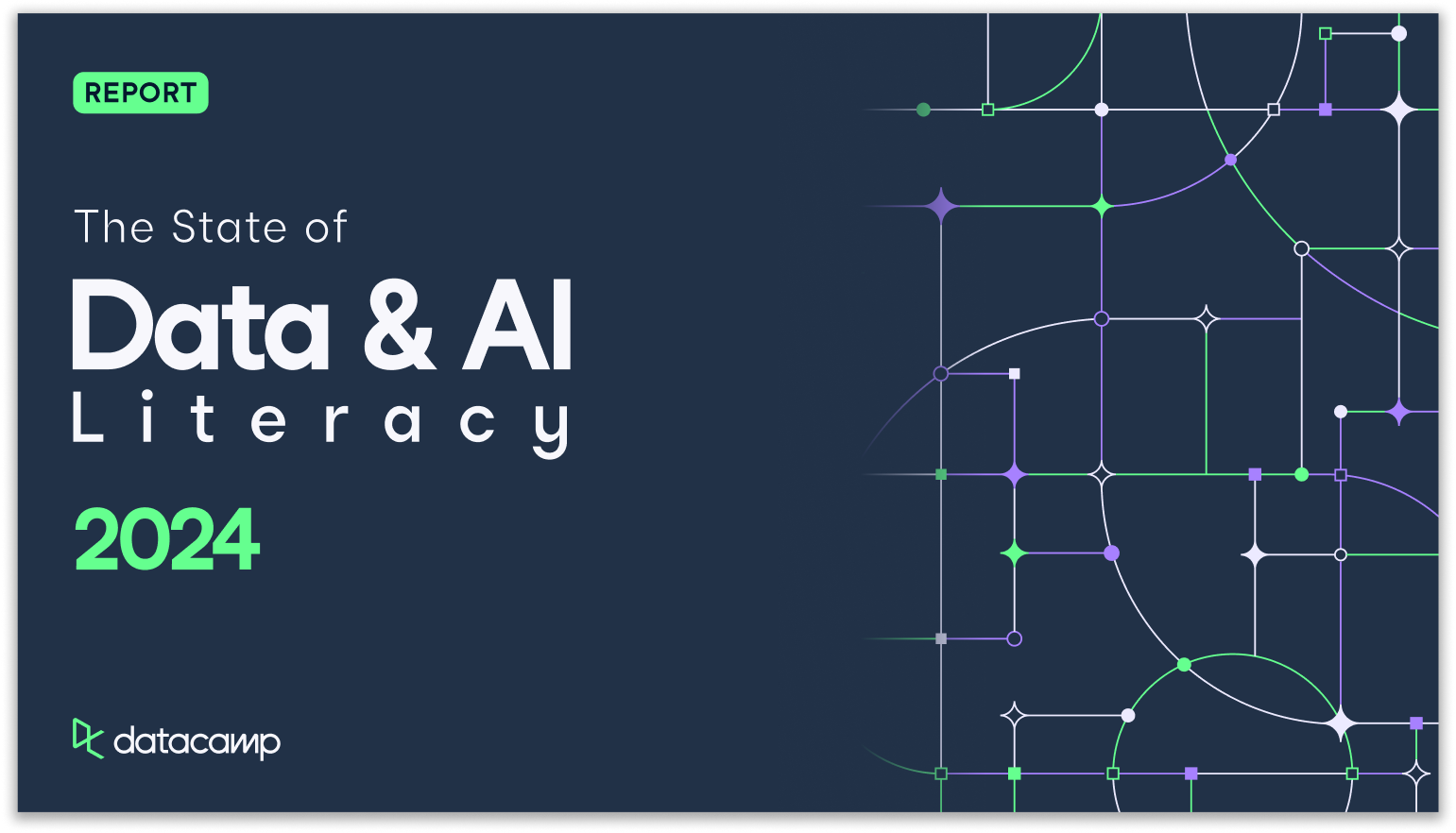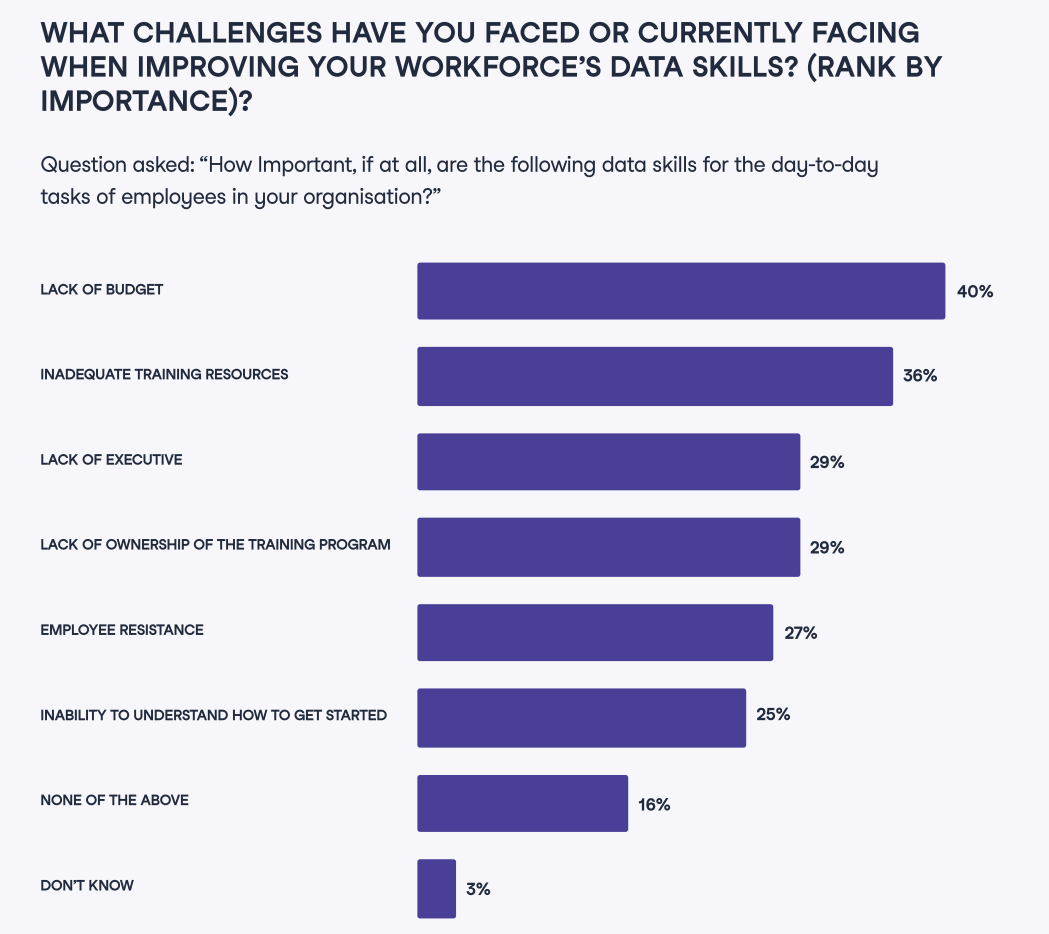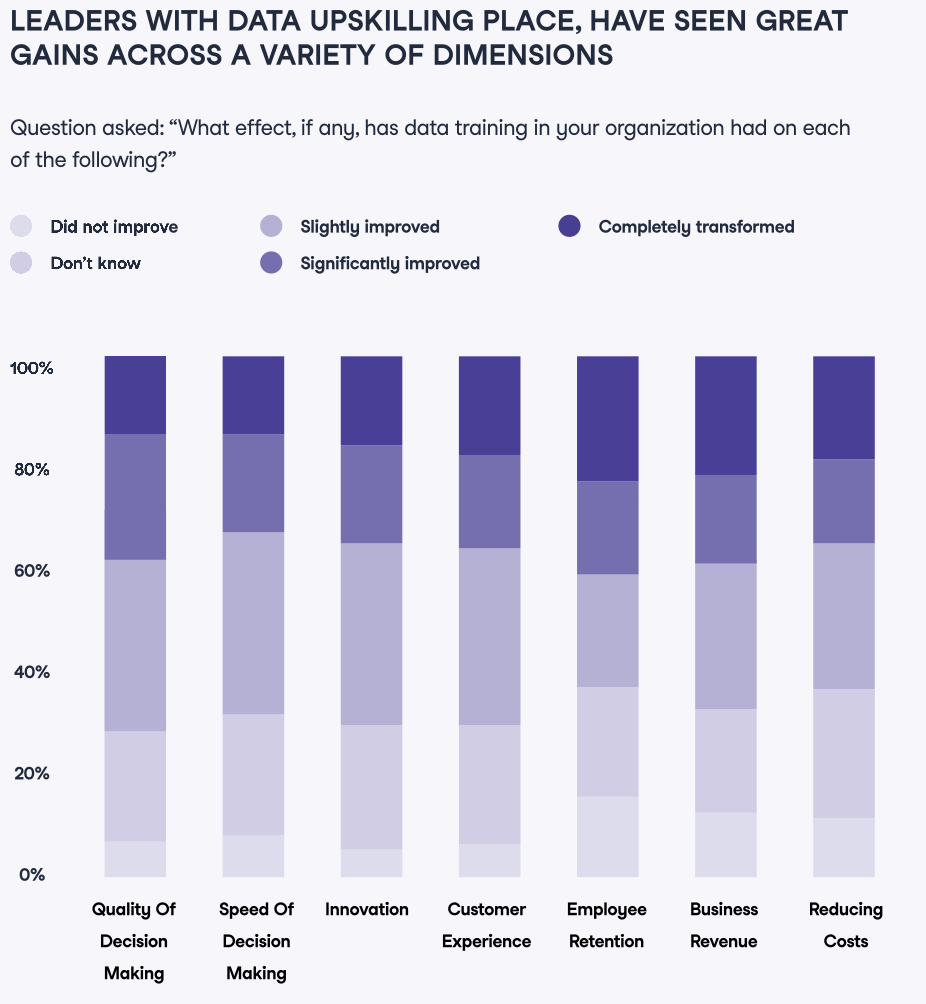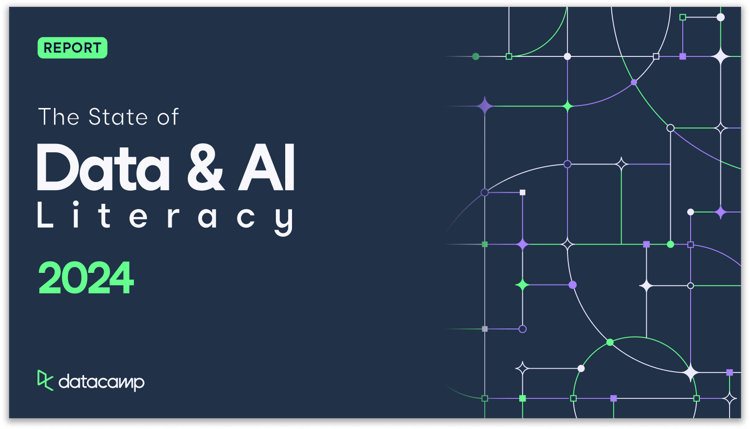Empower Your Team with Data Literacy
Enhance your team's data literacy and decision-making capabilities with DataCamp for Business. Access diverse courses, hands-on projects, and centralized insights for teams of 2 or more.
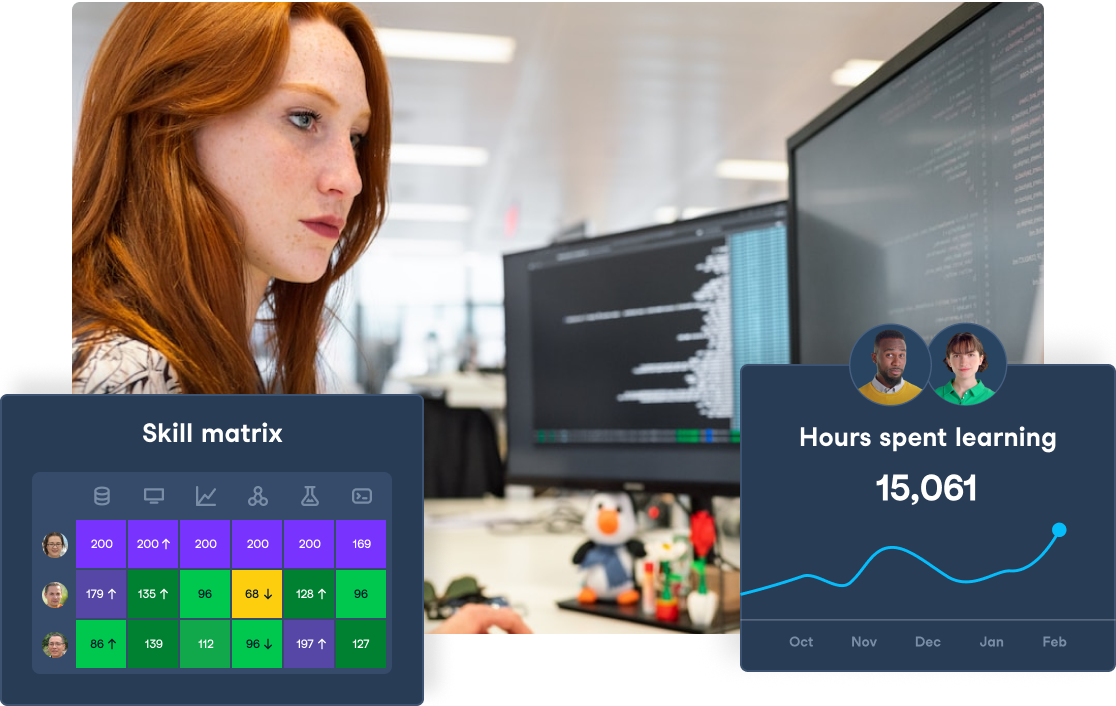
Data culture and skills are a big part of a successful data strategy. Because ultimately, what leaders need to understand is whether everybody in the company sees data as an asset and, if so, how do they see it? For example, somebody who’s worked on the shop floor all their life may not know how data can deliver value for them. So I think the upskilling and data literacy program is definitely something that you want to do early as part of your data strategy to be able to deliver value down the line.
Vijay Yadav, Director of Quantitative Sciences & Head of Data Science at the Center for Mathematical Sciences at Merck
The future of learning enables learners to take what they learned today and start applying it tomorrow, and DataCamp does that with the latest data technologies.
Lawrence Liew, Director of AI Innovation at AI Singapore
Training 2 or more people? Check out our Business solutions
Get your team access to the full DataCamp library, with centralized reporting, assignments, projects and more

Download the State of Data & AI Literacy Report 2024
Uncover what 550+ leaders in the US & UK believe about the state of their teams’ data & AI skills.
